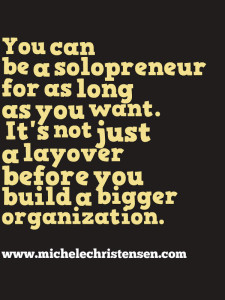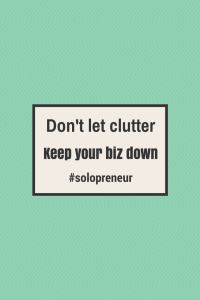Most of the time, I write strictly about solopreneur businesses, but sometimes I write about topics that aren’t all about business. Today is the first of a series of not-strictly-business posts about a new experiment I’m participating in called Happify.
Happify is a new website created to help people feel more happy. I was invited to be a pioneer member, and decided to jump in for several reasons:
- The activities promoted on the site are small, bite-sized things that don’t take much time. You are given a handful of activities and a week to do them, so in just a few minutes on a few days out of the week you can complete your activities.
- Who doesn’t want to feel more happy?
- The site and the activities are based on science. This is very important to me because I use evidence, reasoning and logic to make decisions and live the best life I can. I’m always learning, testing and revising what I think and what I do.
- I liked the idea of being a pioneer. Who doesn’t want to be one of the first to jump onto something new?
- I liked the idea of being able to interact with other people on a similar quest. It can only be good to connect with other people striving to feel more happy.
I’ve been a member for 3 days now, and here’s how it’s gone so far.
The sign-up process was smooth. It was about the same as it is for most sites. One of my favorite parts was writing my bio – instead of the usual bio, I was asked to write a bit about what makes me happy. I wanted to use all the available space, so I had to think of lots of things. This led me to including things I wouldn’t normally have thought to include. An example is that I included my potential, and I’ve never thought of that as a reason to be happy but having the potential to do lots of different things and to be successful is something to be happy about.
I wasn’t crazy about some of the journaling exercises, such as “Write down things you are grateful for.” Been there, done that, not original. Even though the effectiveness of this practice may be supported by the evidence, I simply didn’t enjoy doing it. I actually kept a gratitude journal for several years where I wrote down at least 3 things I was grateful for every night. I eventually gave the practice up because I noticed no change from it. The good thing is the site lets you rate how much you enjoyed the activity, which I hope will allow for greater customization later.
One of the next activities was poorly designed, but I still got a benefit from it. It was supposed to build your ability to savor, and the idea was to look at a picture and find objects in the picture. Some of the objects were easy to spot, others not so much. I’ve thought about how to describe why I think it was poorly designed, but I’m unable to do do without spoiling it for anyone else who might want to do the exercise. In general, I place a high value on (and derive much enjoyment from) precision, logic and clear communication and this exercise was lacking in those areas which I think is poor design.
The other reason I didn’t like it was that I simply don’t enjoy this kind of activity so it was hard to savor it. That’s where I actually got the benefit from – getting clear on the idea that I don’t enjoy all activities equally and I only savor the ones I do like. If I’m going through the mail, that’s just a mundane chore of adult life. Yes, I can make it as nice as possible by giving myself a good place to work, nice music and maybe something nice to drink but in the end it’s still not something to savor. It’s something to plow through so I can get to something I want to savor and enjoy. A different example is coffee. I love coffee and almost always savor it when I have it, which is daily. I don’t even have to think about it. So what I learned is to be clear on whether or not an activity is worth savoring and then act accordingly.
Where the site got it right on the topic of savoring is with some of the other activities and questions on savoring. I liked having to think about what activity in my daily life I was going to savor and then write about it. It was a great way to draw attention to something I hadn’t thought of savoring before and now I realize how much I like it.
This site has several different tracks so you can pick what is most relevant to you and a lot of the activities have some choice too. You can interact with others by following them, sharing your activities or posting to forums.
So, I’ll check back in a few days and let you know how it’s going. So far, I like it. I feel like it’s only been a few minutes (under an hour total) investment of my time and that I have made a few thought changes that make me happier. That’s a good return on investment.
PS – As of right now, I have 5 invitations to test the site. Email me if you want one.









